0
Report
Community:
May 1, 2023
Federally funded Responsible Fatherhood programs work with fathers to promote healthy relationships and marriages, strengthen parenting practices, and help fathers attain economic stability. For programs to improve fathers’ outcomes, they need to be able to recruit fathers, engage them in services, and keep them actively participating in program activities. However, it is challenging for programs to achieve these participation goals. The Strengthening the Implementation of Responsible Fatherhood Programs (SIRF) study was designed to strengthen programs and build evidence on promising practices to improve the enrollment, engagement, and retention of fathers in program activities. Fatherhood programs participating in SIRF iteratively implemented and assessed promising approaches to addressing implementation challenges, with the support of and in partnership with the SIRF team.
Authored by: Charles Michalopoulos, Emily Marano, Becca Heilman, Michelle S. Manno, Patrizia Mancini, Scott Cody for MDRC
Topics: Family engagement, Healthy homes, Legislation & Policy, Low-income, Research, Stability
 Shared by Sandra Ware
Shared by Sandra Ware
Sandra Ware posted a
on Jun 1, 2023
Charles Michalopoulos, Emily Marano, Becca Heilman, Michelle S. Manno, Patrizia Mancini, Scott Cody for MDRC
Federally funded Responsible Fatherhood programs work with fathers to promote healthy relationships and marriages, strengthen parenting practices, and help fathers attain economic stability.
0
Report
Community:
May 8, 2023
The 2022 Federal Broadband Funding Report summarizes and analyzes FY21 data collected from across the federal government. Broadband funding under the Bipartisan Infrastructure Law was appropriated in FY22 and will be included as part of the 2023 Report. Due to the data collection timeline, Federal Broadband Funding Reports currently report on the previous fiscal year rather than the fiscal year they are released in.
To accompany this report, NTIA developed a consolidated data dashboard to assist in the analysis and reporting for FY21 federal broadband investments. The full dashboard with comprehensive filters and data extract capabilities is below, links to the report data in Infogram®, a data visualization and infographics platform.
Authored by: National Telecommunications and Information Administration
Topics: Broadband, Data sharing, Legislation & Policy, Low-income
 Shared by Sandra Ware
Shared by Sandra Ware
Sandra Ware posted a
on Jun 1, 2023
National Telecommunications and Information Administration
The 2022 Federal Broadband Funding Report summarizes and analyzes FY21 data collected from across the federal government. Broadband funding under the Bipartisan Infrastructure Law was appropriated in FY22 and will be included as part of the 2023 Report.
0
Report
Community:
Jun 1, 2023
Every May, Ascend recognizes the importance of raising awareness about mental health and the multifaceted ways that it impacts family prosperity and well-being. Even as Mental Health Awareness Month comes to a close, we are committed every day to uplifting the drumbeat across our community that calls for an end to mental health stigma, making strides to ensure that families can access quality services, and advocating for policies that support families' unique mental health needs.
Join us in the national movement to raise awareness about mental health by exploring some of our new resources and sharing them with your community of changemakers!
Authored by: Ascend and the Jed Foundation for Ascend
Topics: Depression, Dual-generation, Education, Legislation & Policy, Mental health, Research
 Shared by Sandra Ware
Shared by Sandra Ware
Sandra Ware posted a
on Jun 1, 2023
Ascend and the Jed Foundation for Ascend
Every May, Ascend recognizes the importance of raising awareness about mental health and the multifaceted ways that it impacts family prosperity and well-being.
0
Report
Community:
May 17, 2023
Researchers at UC Berkeley’s Youth and Allies Against Homelessness, or YAAH, conducted a study to better understand how the COVID-19 pandemic disproportionately affected unhoused youth and their ability to transition out of homelessness and into adulthood. YAAH released a report Wednesday to suggest how to better support this community in the future.
Authored by: UC Berkeley's Youth Allies Against Homelessness for The Daily Californian
Topics: Broadband, COVID-19, Food insecurity, Health, Homelessness, Housing, Low-income, Mental health, Racial inequalities, Youth
 Shared by Sandra Ware
Shared by Sandra Ware
Sandra Ware posted a
on May 25, 2023
UC Berkeley's Youth Allies Against Homelessness for The Daily Californian
Researchers at UC Berkeley’s Youth and Allies Against Homelessness, or YAAH, conducted a study to better understand how the COVID-19 pandemic disproportionately affected unhoused youth and their ability to transition out of homelessness and into adulthood.
0
Infographics
Community:
May 24, 2023
The unwinding of the Medicaid continuous coverage requirement represents the largest nationwide coverage transition since the Affordable Care Act, with significant health equity implications. As states restart eligibility redeterminations, millions of Medicaid enrollees will be at risk of losing their coverage with some portion exiting because they are no longer eligible, some losing coverage due to administrative challenges despite continued eligibility, and some transitioning to another source of coverage. Given the intense focus on coverage transitions during the unwinding, some states have initiated plans to publish a data dashboard to monitor progress. Data dashboards are useful for publishing dynamic data that is in high demand. They allow states to make proactive decisions about what data to release and on what schedule and then organize that data in an easy-to-digest visual format that facilitates the interpretation of key trends and patterns at a glance.
Authored by: Emily Zylla, Elizabeth Lukanen, and Lindsey Theis, SHADAC for State Health and Value Strategies
Topics: Affordable Care Act, Data sharing, Medicaid / Medicare
 Shared by Sandra Ware
Shared by Sandra Ware
Sandra Ware posted a
on May 25, 2023
Emily Zylla, Elizabeth Lukanen, and Lindsey Theis, SHADAC for State Health and Value Strategies
The unwinding of the Medicaid continuous coverage requirement represents the largest nationwide coverage transition since the Affordable Care Act, with significant health equity implications.
0
Report
Community:
May 1, 2023
During the 2022–2023 school year, there was a significant increase in the number of schools and districts participating in community eligibility, according to FRAC’s latest report, Community Eligibility: The Key to Hunger-Free Schools, School Year 2022–2023.
This report analyzes community eligibility adoption—nationally and for each state and the District of Columbia—in the 2022–2023 school year.
Authored by: Food Research & Action Center
Topics: Education, Food insecurity
 Shared by Camille Anoll-Hunter
Shared by Camille Anoll-Hunter
Camille Anoll-Hunter posted a
on May 24, 2023
Food Research & Action Center
During the 2022–2023 school year, there was a significant increase in the number of schools and districts participating in community eligibility, according to FRAC’s latest report, Community Eligibility: The Key to Hunger-Free Schools, School Year 2022–2023.
This report analyzes community eligibi
0
Report
Community:
May 17, 2023

The COVID-19 pandemic has upended life for children and families globally. The health, economic, educational and related stressors have contributed to mental health challenges for people of all ages, including our youngest and those who care for them.
In a new report, the Children's Equity Project, in partnership with the Buffett Early Childhood Institute at the University of Nebraska and Yale University, highlights the mental health of the early care and education workforce and the children they care for using data collected over the course of the pandemic in 2020 and 2021.
The report focuses on depression and elevated stress, including racialized stress in early educators, and provider reported increases in child externalizing, internalizing, and somatic symptoms. We provide national data as well as state profiles that highlight trends across state lines. We end with a set of recommendations for Congress, federal agencies, and states in prioritizing the mental health of children, families, and the early educators who care for them.
Authored by: Cinthia Palomino, PhD, Ayse Cobanoglu, PhD, Jennifer Oppenheim, PsyD, Evandra Catherinr, PhD, Shantel Meek, PhD, Walter Gilliam, PhD, Eric Bucher, EdD for Children's Equity Project
Topics: COVID-19, Early childhood, Education, Legislation & Policy, Low-income, Mental health, Racial inequalities
 Shared by Sandra Ware
Shared by Sandra Ware
Sandra Ware posted a
on May 17, 2023
Cinthia Palomino, PhD, Ayse Cobanoglu, PhD, Jennifer Oppenheim, PsyD, Evandra Catherinr, PhD, Shantel Meek, PhD, Walter Gilliam, PhD, Eric Bucher, EdD for Children's Equity Project
The COVID-19 pandemic has upended life for children and families globally.
0
Publication
Community:
May 2, 2023

The Digital Equity Act (DEA) is a once-in-a-generation opportunity to design systems that will enable true digital equity. Congress and NTIA outlined specifics for states to include in their digital equity plans. The NDIA State Digital Equity Plan Toolkit provides guidance on how to compile the plans. The National Digital Inclusion Alliance (NDIA) team combined our own subject matter expertise, lessons learned from our community of over 1,000 affiliates across the country, and our understanding of the DEA as it appears in the Infrastructure Investment and Jobs Act (IIJA) and Notice of Funding Opportunity into what we hope is a particularly useful toolkit for you, the administering entities, as you embark on this planning process. Through best practices, recommended step-by-step processes, templates, and tools, the Toolkit supports administering entities and your partners in designing robust, comprehensive digital equity plans that lead to impactful digital inclusion programs, policies, and tools.
Authored by: NDIA
Topics: Broadband, Community development, Funding, Legislation & Policy, Low-income, Partnerships
 Shared by Sandra Ware
Shared by Sandra Ware
Sandra Ware posted a
on May 2, 2023
The Digital Equity Act (DEA) is a once-in-a-generation opportunity to design systems that will enable true digital equity. Congress and NTIA outlined specifics for states to include in their digital equity plans.
0
Publication
Community:
Mar 22, 2023
This resource provides guidance to Public Housing Authorities (PHAs), HUD-Assisted communities and other stakeholders wondering how this funding will benefit their communities and what role they can play in ensuring that funds do come to their neighborhoods.
The Department of Commerce’s National Telecommunications and Information Administration (NTIA) published three Notices of Funding Opportunity (NOFO) which will distribute more than $45 billion to states, territories, and tribes for the advancement of broadband infrastructure and digital equity across the country.
The guide also builds on the Preparing for New Broadband Funding: A Collaborative Partnership Model webinar and covers key information about the new Broadband Equity, Access, and Deployment (BEAD) program and the Digital Equity Act (DEA) program and provides tips for engaging with state broadband leaders during the planning process.
Authored by: ConnectHomeUSA
Topics: Broadband
 Shared by Malcolm Guy
Shared by Malcolm Guy
Malcolm Guy posted a
on Mar 22, 2023
This resource provides guidance to Public Housing Authorities (PHAs), HUD-Assisted communities and other stakeholders wondering how this funding will benefit their communities and what role they can play in ensuring that funds do come to their neighborhoods.
The Department of Commerce’s National
0
Report
Community:
Mar 21, 2023
Mental wellbeing affects all aspects of our lives and
our society. Through the 2022 Signature Series,
the Alliance centered a robust discussion of policy
options, trade offs, and challenges around the
experience of patients and their families by taking a
listen first approach.
Authored by: Alliance for Health Policy
Topics: Homelessness, Legislation & Policy, Mental health, Racial inequalities, SAMHSA, Workforce development
 Shared by Sandra Ware
Shared by Sandra Ware
Sandra Ware posted a
on Mar 21, 2023
Alliance for Health Policy
Mental wellbeing affects all aspects of our lives and
our society. Through the 2022 Signature Series,
the Alliance centered a robust discussion of policy
options, trade offs, and challenges around the
experience of patients and their families by taking a
listen first approach.
0
Publication
Community:
Mar 2, 2023
Many students and families arrive in the U.S. from other countries without safe, stable housing, and experience homelessness and high mobility that can last for months. At SchoolHouse Connection, we recognize the crucial role that schools can play in providing stability and support to mitigate the disruption and trauma caused by homelessness. This page is dedicated to providing educators, policymakers, and advocates with valuable resources on how to best support these families and youth, and help ensure that all students have the opportunity to succeed in school and beyond.
Authored by: School House Connection
Topics: Early childhood, Education, Grade-level proficiency, Homelessness, Housing, Immigrants, Legislation & Policy, School-readiness, Youth
 Shared by Sandra Ware
Shared by Sandra Ware
Sandra Ware posted a
on Mar 14, 2023
Many students and families arrive in the U.S. from other countries without safe, stable housing, and experience homelessness and high mobility that can last for months.
0
Report
Community:
Mar 1, 2023
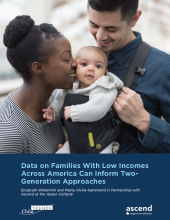
We are delighted to share a new research report in partnership with Child Trends: Data on Families with Low Incomes Across America Can Inform Two-Generation Approaches. In this new analysis, research experts Elizabeth Wildsmith and Marta Alvira-Hammond paint a detailed picture of how families in households with low incomes in the United States have changed since 2011. The report highlights 10 key findings from their analyses of family economic and social conditions related to financial security and mobility, family structure and living arrangements, education and employment, parental health, and community health indicators (for example, rates of child poverty, violent crime, child care costs). A deeper understanding of families with low-incomes will inform our collective work and strengthen how our 2Gen policy and practice recommendations can prioritize health, education, employment, and economic assets to ensure families have access to the resources they need to build intergenerational prosperity and well-being.
Authored by: Elizabeth Wildsmith and Marta Alvira-Hammond for Child Trends in partnership with Ascend at the Aspen Institute
Topics: dual-generation initiative, Early childhood, Education, Health, Housing, Legislation & Policy, Low-income, Racial inequalities
 Shared by Sandra Ware
Shared by Sandra Ware
Sandra Ware posted a
on Mar 2, 2023
Elizabeth Wildsmith and Marta Alvira-Hammond for Child Trends in partnership with Ascend at the Aspen Institute
We are delighted to share a new research report in partnership with Child Trends: Data on Families with Low Incomes Across America Can Inform Two-Generation Approaches.
0
Report
Community:
Mar 1, 2023
At this time of year, pull up to a busy intersection or pass by some popular public gathering place in and around Durham, and there’s a good chance you might find a sign advertising “PreK for All.” January kicks off Durham PreK’s annual recruitment campaign for the approaching school year, and if you have a rising preschooler in your life, you may be wondering what it means to offer pre-k for all.
The resulting report, “Toward Equity in Durham PreK: Addressing the Accessibility of Wraparound Care as a Barrier to Universal PreK in Durham,” details the findings, identifies key program participation challenges tied to wraparound care access and availability, and offers conclusions and recommendations for addressing these challenges now and in the future.
Authored by: Child Care Services Association (CCSA)
Topics: COVID-19, Early childhood, Education, Funding, Housing, Legislation & Policy, Low-income, Racial inequalities
 Shared by Sandra Ware
Shared by Sandra Ware
Sandra Ware posted a
on Mar 2, 2023
Child Care Services Association (CCSA)
At this time of year, pull up to a busy intersection or pass by some popular public gathering place in and around Durham, and there’s a good chance you might find a sign advertising “PreK for All.” January kicks off Durham PreK’s annual recruitment campaign for the approaching school year, and if yo
0
Report
Community:
Feb 17, 2023
The findings from a Syracuse University study linking universal school meal policies with improved school attendance for young students provides a strong case for expanding free school meals, according to school nutrition and attendance experts.
Authored by: Anna Merod for K-12 DIVE
Topics: Attendance, Early childhood, Education, Food insecurity, Health, Legislation & Policy, Low-income, Nutrition, Youth
 Shared by Sandra Ware
Shared by Sandra Ware
Sandra Ware posted a
on Feb 23, 2023
The findings from a Syracuse University study linking universal school meal policies with improved school attendance for young students provides a strong case for expanding free school meals, according to school nutrition and attendance experts.
0
Infographics
Community:
Feb 7, 2023
An analysis of recent trends in child and youth homelessness that show the impact of the pandemic, including a disproportionate decline in enrollment and increase in chronic absenteeism.
Authored by: SchoolHouse Connection and University of Michigan
Topics: Attendance, COVID-19, Disabilities, Early childhood, Homelessness, Legislation & Policy, Racial inequalities, School-readiness, Youth
 Shared by Sandra Ware
Shared by Sandra Ware
Sandra Ware posted a
on Feb 21, 2023
SchoolHouse Connection and University of Michigan
An analysis of recent trends in child and youth homelessness that show the impact of the pandemic, including a disproportionate decline in enrollment and increase in chronic absenteeism.
0
Report
Community:
Feb 7, 2023

In the 2020-21 school year, more than 25 million children and youth – roughly half of all elementary and secondary students in the United States – attended schools in school districts that lacked dedicated funding to identify and support students experiencing homelessness. This significant funding gap increases the likelihood that many children and youth experiencing homelessness will not be identified, and even in cases where they are identified, that they will not receive the educational protections and services that can stabilize their education and their lives. Ensuring access to these supports is an important part of creating a school system that meets the needs of all our nation’s children and youth. SchoolHouse Connection and Poverty Solutions at the University of Michigan analyzed publicly-available preK-12 federal education data for the 2020-2021 school year to examine patterns that are correlated with under-identifying and inadequately supporting children and youth experiencing homelessness.
Authored by: SchoolHouse Connection and University of Michigan
Topics: Early childhood, Education, Funding, Homelessness, Low-income, Research, School-readiness, Stability, Youth
 Shared by Sandra Ware
Shared by Sandra Ware
Sandra Ware posted a
on Feb 21, 2023
SchoolHouse Connection and University of Michigan
In the 2020-21 school year, more than 25 million children and youth – roughly half of all elementary and secondary students in the United States – attended schools in school districts that lacked dedicated funding to identify and support students experiencing homelessness.
0
Publication
Community:
Sep 29, 2022
Housing is a complex domain. Solutions that repair our broken housing system will require a collaborative approach to funding and long-term systems change.
Authored by: Funders for Housing and Opportunity for the Stanford Social Innovation Review
Topics: COVID-19, Funding, Housing, Racial inequalities
 Shared by Sandra Ware
Shared by Sandra Ware
Sandra Ware posted a
on Jan 3, 2023
Funders for Housing and Opportunity for the Stanford Social Innovation Review
Housing is a complex domain. Solutions that repair our broken housing system will require a collaborative approach to funding and long-term systems change.
0
Publication
Community:
Oct 6, 2022
How a national funder collaborative is empowering communities, expanding access to housing in BIPOC neighborhoods, and changing policies, narratives, and systems that perpetuate racial injustice.
Authored by: Bea de la Torre for the Stanford Social Innovation Review
Topics: Funding, Housing, Legislation & Policy, Racial inequalities
 Shared by Sandra Ware
Shared by Sandra Ware
Sandra Ware posted a
on Jan 3, 2023
Bea de la Torre for the Stanford Social Innovation Review
How a national funder collaborative is empowering communities, expanding access to housing in BIPOC neighborhoods, and changing policies, narratives, and systems that perpetuate racial injustice.
0
Publication
Community:
Oct 13, 2022
Is the future of philanthropy a more collaborative one? The leaders of Funders for Housing and Opportunity share lessons to help the field learn—and evolve—in real time.
Authored by: Jeanne Fekade-Sellassie & Jennifer Angarita for the Stanford Social Innovation Review
Topics: Community development, Funding, Housing, Legislation & Policy, Racial inequalities
 Shared by Sandra Ware
Shared by Sandra Ware
Sandra Ware posted a
on Jan 3, 2023
Jeanne Fekade-Sellassie & Jennifer Angarita for the Stanford Social Innovation Review
Is the future of philanthropy a more collaborative one? The leaders of Funders for Housing and Opportunity share lessons to help the field learn—and evolve—in real time.
0
Publication
Community:
Oct 20, 2022
Three social change leaders discuss how to move the narrative about housing away from a focus on individual actions toward values, racial justice, and the well-being of all.
Authored by: Glenn Harris, Michael McAfee, & Dorian Warren for the Stanford Social Innovation Review
Topics: Housing, Legislation & Policy, Racial inequalities
 Shared by Sandra Ware
Shared by Sandra Ware
Sandra Ware posted a
on Jan 3, 2023
Glenn Harris, Michael McAfee, & Dorian Warren for the Stanford Social Innovation Review
Three social change leaders discuss how to move the narrative about housing away from a focus on individual actions toward values, racial justice, and the well-being of all.
0
Publication
Community:
Oct 27, 2022
To solve the housing crisis, funders must take collective action to simultaneously solve the climate crisis and prioritize those who have had the least to do with creating either.
Authored by: Dana Bourland for the Stanford Social Innovation Review
Topics: Advocacy, Environmental Resiliency/Climate Change, Green, Housing, Lead, Low-income, Racial inequalities
 Shared by Sandra Ware
Shared by Sandra Ware
Sandra Ware posted a
on Jan 3, 2023
Dana Bourland for the Stanford Social Innovation Review
To solve the housing crisis, funders must take collective action to simultaneously solve the climate crisis and prioritize those who have had the least to do with creating either.
0
Publication
Community:
Nov 10, 2022
Two housing justice advocates discuss different approaches to policy change and the importance of centering the voices of people most affected by systemic barriers and inequities in housing.
Authored by: Amy Gillman, Liz Ryan Murray, & Mike Koprowski for the Stanford Social Innovation Review
Topics: Advocacy, Housing, Legislation & Policy, Low-income, Racial inequalities
 Shared by Sandra Ware
Shared by Sandra Ware
Sandra Ware posted a
on Jan 3, 2023
Amy Gillman, Liz Ryan Murray, & Mike Koprowski for the Stanford Social Innovation Review
Two housing justice advocates discuss different approaches to policy change and the importance of centering the voices of people most affected by systemic barriers and inequities in housing.
0
Publication
Community:
Nov 17, 2022
Lessons for funders and social change leaders in search of the best ways to collaborate across sectors to end homelessness.
Authored by: Seyron Foo, Raji Hunjan, & Amy Kleine for the Stanford Social Innovation Review
Topics: Funding, Homelessness, Housing, Low-income, Supportive housing, Youth
 Shared by Sandra Ware
Shared by Sandra Ware
Sandra Ware posted a
on Jan 3, 2023
Seyron Foo, Raji Hunjan, & Amy Kleine for the Stanford Social Innovation Review
Lessons for funders and social change leaders in search of the best ways to collaborate across sectors to end homelessness.
0
Publication
Community:
Dec 1, 2022
Local initiatives are breaking new ground to make access to housing and opportunity more affordable and equitable and to increase the resources dedicated to housing justice.
Authored by: Mercedeh Mortazavi & Alana Greer for the Sandford Social Innovation Review
Topics: Community development, Housing, Legislation & Policy, Partnerships, Racial inequalities
 Shared by Sandra Ware
Shared by Sandra Ware
Sandra Ware posted a
on Jan 3, 2023
Mercedeh Mortazavi & Alana Greer for the Sandford Social Innovation Review
Local initiatives are breaking new ground to make access to housing and opportunity more affordable and equitable and to increase the resources dedicated to housing justice.
0
Publication
Community:
Nov 3, 2022
In the newly released Stanford Social Innovation Review article, co-authors Jessica Mulcahy, Success Measures at NeighborWorks America; Vedette R. Gavin, Verge Impact Partners; and Stacey Barbas and Kate McLaughlin, The Kresge Foundation discuss their collaborative work on a three-year developmental evaluation to learn about the strategies and approaches grantees are using to advance health equity through housing. This article is part of the series “Collaboration for Housing Justice” sponsored by Funders for Housing and Opportunity to mark their fifth anniversary.
Authored by: Stacey Barbas, Kate McLaughlin, Jessica Mulcahy & Vedette R. Gavin, Stanford Social Innovation Review
Topics: Community development, Health, Housing, Place-based, Racial inequalities, Research
 Shared by Camille Anoll-Hunter
Shared by Camille Anoll-Hunter
Camille Anoll-Hunter posted a
on Dec 15, 2022
Stacey Barbas, Kate McLaughlin, Jessica Mulcahy & Vedette R. Gavin, Stanford Social Innovation Review
In the newly released Stanford Social Innovation Review article, co-authors Jessica Mulcahy, Success Measures at NeighborWorks America; Vedette R.
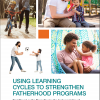
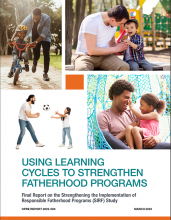
 Shared by Sandra Ware
on Jun 1, 2023
Shared by Sandra Ware
on Jun 1, 2023


 Shared by Sandra Ware
on Jun 1, 2023
Shared by Sandra Ware
on Jun 1, 2023


 Shared by Sandra Ware
on Jun 1, 2023
Shared by Sandra Ware
on Jun 1, 2023


 Shared by Sandra Ware
on May 25, 2023
Shared by Sandra Ware
on May 25, 2023


 Shared by Sandra Ware
on May 25, 2023
Shared by Sandra Ware
on May 25, 2023
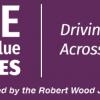

 Shared by Camille Anoll-Hunter
on May 24, 2023
Shared by Camille Anoll-Hunter
on May 24, 2023


 Shared by Sandra Ware
on May 17, 2023
Shared by Sandra Ware
on May 17, 2023


 Shared by Sandra Ware
on May 2, 2023
Shared by Sandra Ware
on May 2, 2023

 Shared by Malcolm Guy
on Mar 22, 2023
Shared by Malcolm Guy
on Mar 22, 2023
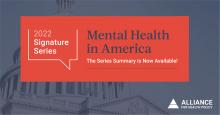
 Shared by Sandra Ware
on Mar 21, 2023
Shared by Sandra Ware
on Mar 21, 2023
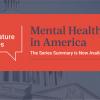
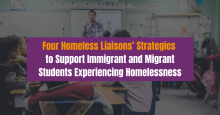
 Shared by Sandra Ware
on Mar 14, 2023
Shared by Sandra Ware
on Mar 14, 2023


 Shared by Sandra Ware
on Mar 2, 2023
Shared by Sandra Ware
on Mar 2, 2023


 Shared by Sandra Ware
on Mar 2, 2023
Shared by Sandra Ware
on Mar 2, 2023


 Shared by Sandra Ware
on Feb 23, 2023
Shared by Sandra Ware
on Feb 23, 2023

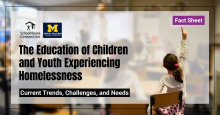
 Shared by Sandra Ware
on Feb 21, 2023
Shared by Sandra Ware
on Feb 21, 2023


 Shared by Sandra Ware
on Feb 21, 2023
Shared by Sandra Ware
on Feb 21, 2023


 Shared by Sandra Ware
on Jan 3, 2023
Shared by Sandra Ware
on Jan 3, 2023


 Shared by Sandra Ware
on Jan 3, 2023
Shared by Sandra Ware
on Jan 3, 2023


 Shared by Sandra Ware
on Jan 3, 2023
Shared by Sandra Ware
on Jan 3, 2023


 Shared by Sandra Ware
on Jan 3, 2023
Shared by Sandra Ware
on Jan 3, 2023


 Shared by Sandra Ware
on Jan 3, 2023
Shared by Sandra Ware
on Jan 3, 2023


 Shared by Sandra Ware
on Jan 3, 2023
Shared by Sandra Ware
on Jan 3, 2023


 Shared by Sandra Ware
on Jan 3, 2023
Shared by Sandra Ware
on Jan 3, 2023


 Shared by Sandra Ware
on Jan 3, 2023
Shared by Sandra Ware
on Jan 3, 2023


 Shared by Camille Anoll-Hunter
on Dec 15, 2022
Shared by Camille Anoll-Hunter
on Dec 15, 2022
